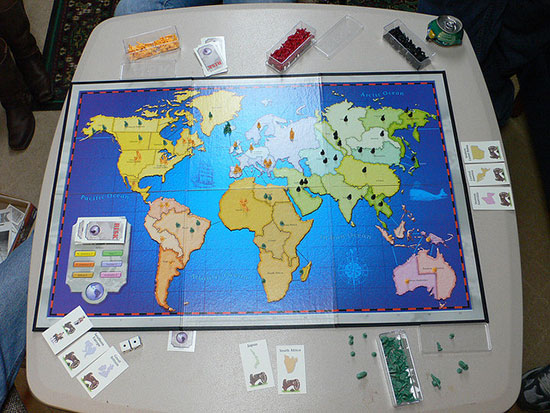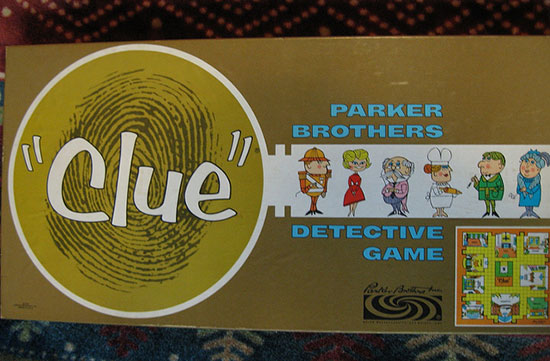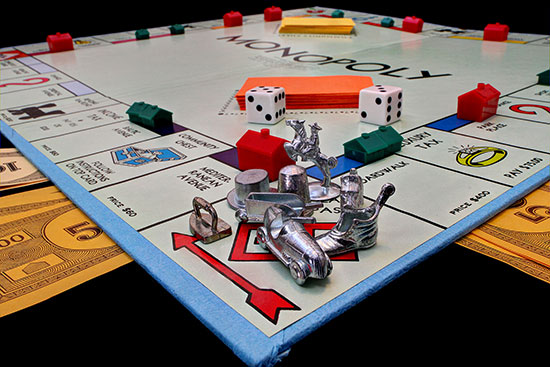Parker Brothers
by Andrew Boyd
Today, for the love of games. The University of Houston's College of Engineering presents this series about the machines that make our civilization run, and the people whose ingenuity created them.
Sometime during the late nineteenth or early twentieth century, George S. Parker sat down at his typewriter. Gathering his thoughts, he began to type. "The entire business," he wrote, "has its foundation in a fondness for games…"
Parker grew up in and around Boston, where for fun he and his family played board games. But Parker wasn't satisfied with simply playing. Soon the teenager was dreaming up his own. One, called Banking, was so popular his friends encouraged him to sell it. To finance his venture Parker sold berries from the family garden, and in late November of 1883, 500 copies of Banking were delivered to his doorstep. With so little time before Christmas, the boy informed his high school principal he'd be leaving school for three weeks to make sales. The principal gave his blessing and Parker was off. Boston. Providence. Salem. The young teen knocked on the doors of local retailers, goods in hand. By Christmas Eve, to the surprise of pretty much everyone, virtually everything was sold.
Parker continued to make and sell games through his newly formed George S. Parker Company. But on graduating from high school he took a job with a local paper that paid "the amazing sum of $3 a week." Parker's love of games, however, proved too strong, and soon he was creating and selling games full time.
The going was tough since he faced competition from larger, more established game makers. So three years after his Christmas sales blitz, Parker made a bold decision. Following a night pacing the floor at a cousin's house, he cornered the head of a major game company at his office in New York. "I was 20 years of age, tall, thin, and pale, but full of determination," he wrote years later. And his audacity paid off. Within hours Parker had received special rights to sell the older man's products throughout the six New England States. It gave Parker a foothold to market his own games alongside more successful ones. And it proved to be just what was needed for the daring young man to grow his business. Two years later his brother Charles joined on and the George S. Parker Company became Parker Brothers.
Through the decades that followed Parker Brothers brought to market some of the most memorable and long-lived board games in American history: Risk, Sorry!, Clue, Trivial Pursuit. Even Tiddledy Winks proved an early best seller. But without a doubt the crown jewel of the Parker Brothers legacy is that classic we know by its playing tokens, including a race car, a thimble, and a top hat. And since 2013, a newly added cat. I'm, of course, talking about Monopoly.

Risk game board [flickr/Nelson Pavlosky]

Clue game box from 1960's [flickr/arbyreed]
It's easy to understand why board games no longer play much of a role in our lives. They just can't compete with our many plugged in, turned on diversions. But here's an often forgotten secret: board games are a wonderful way to enjoy time with family and friends.

Monopoly gameboard [flickr/arbyreed]
I'm Andy Boyd at the University of Houston, where we're interested in the way inventive minds work.
(Theme music)
Notes and references:
This essay is based on an unpublished letter of George S. Parker made available on the Parker family website: http://parkerbrothersfamilyhistory.blogspot.com/. Accessed March 18, 2014.
Parker Brothers. From the Wikipedia website: https://en.wikipedia.org/wiki/Parker_Brothers. Accessed March 18, 2014.
This episode first aired on March 20, 2014.